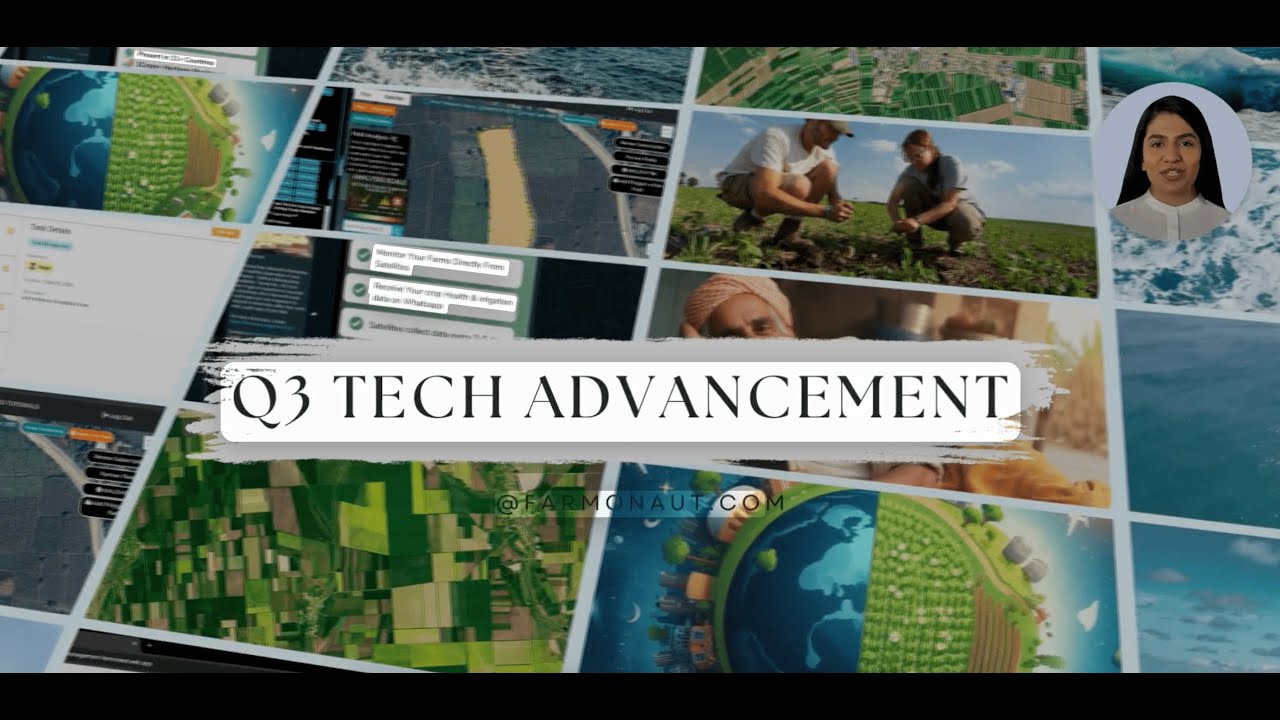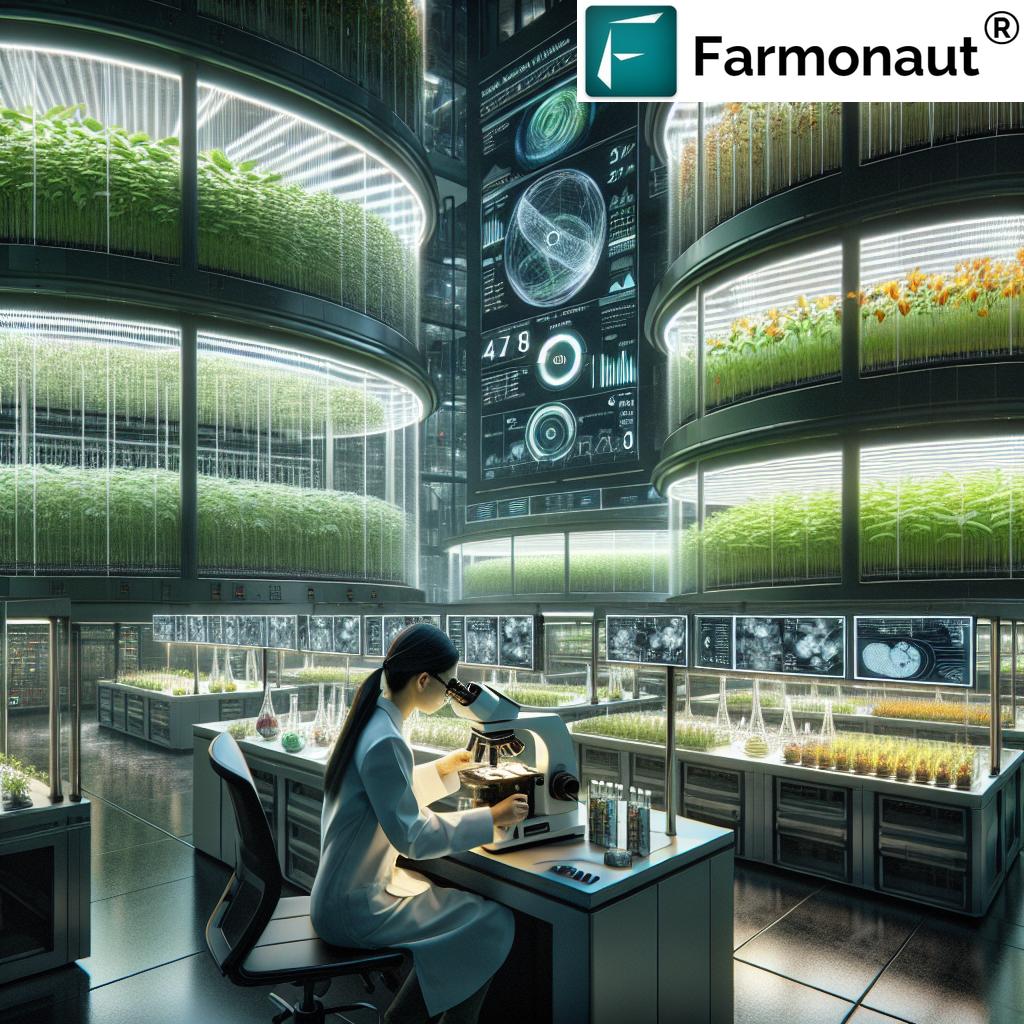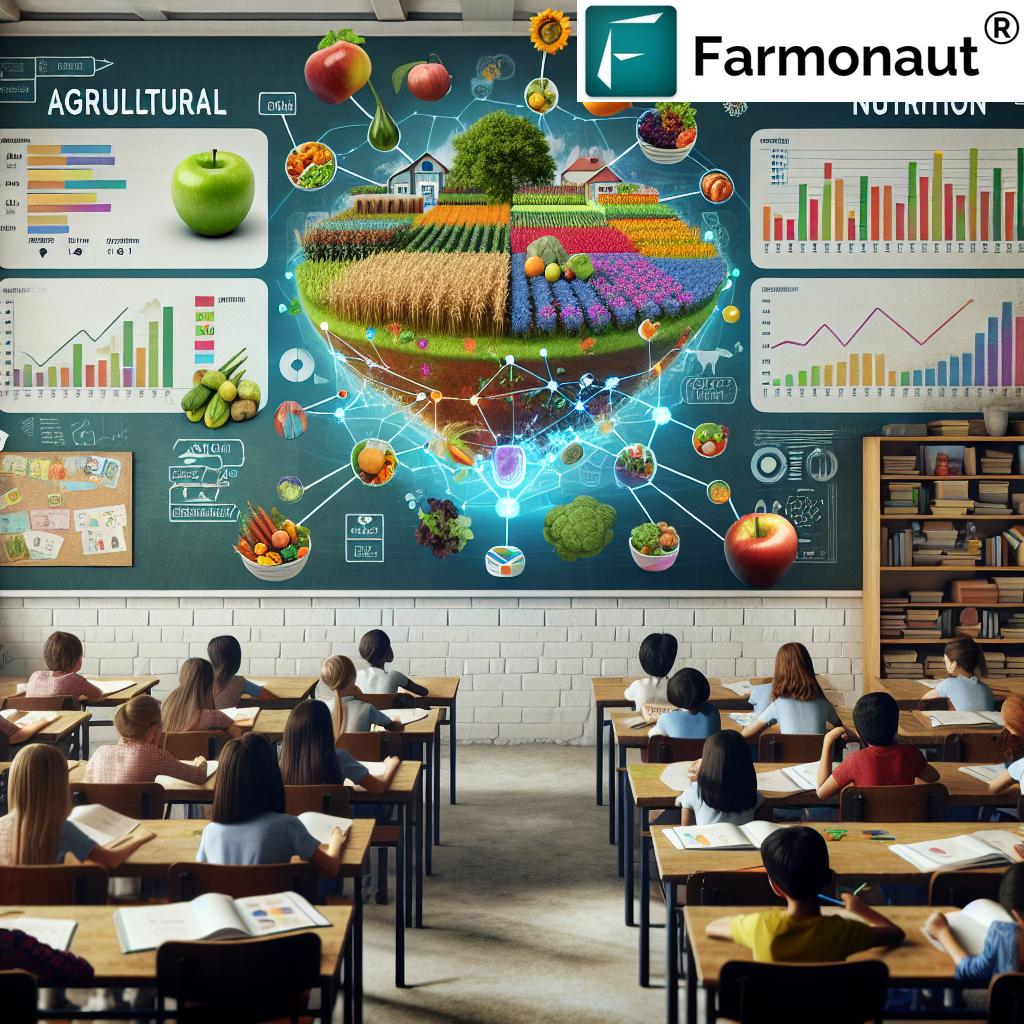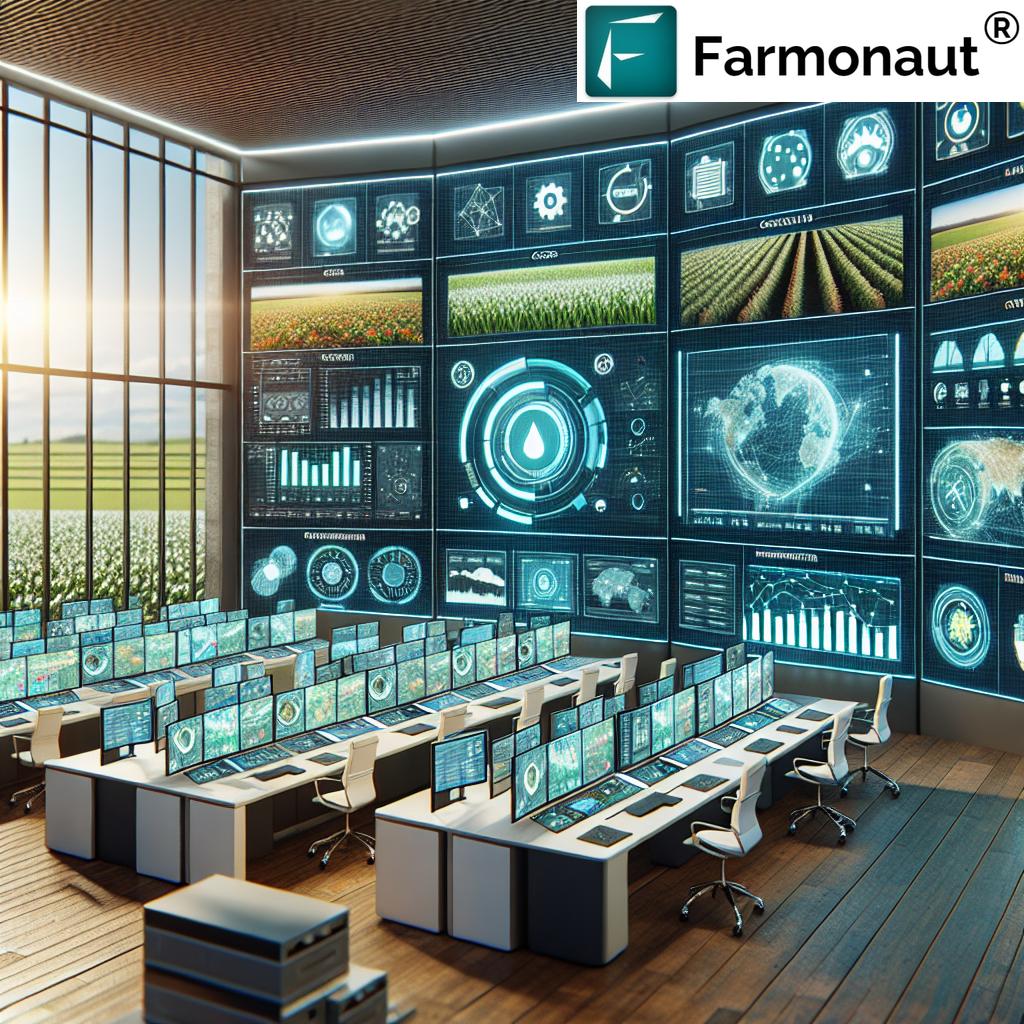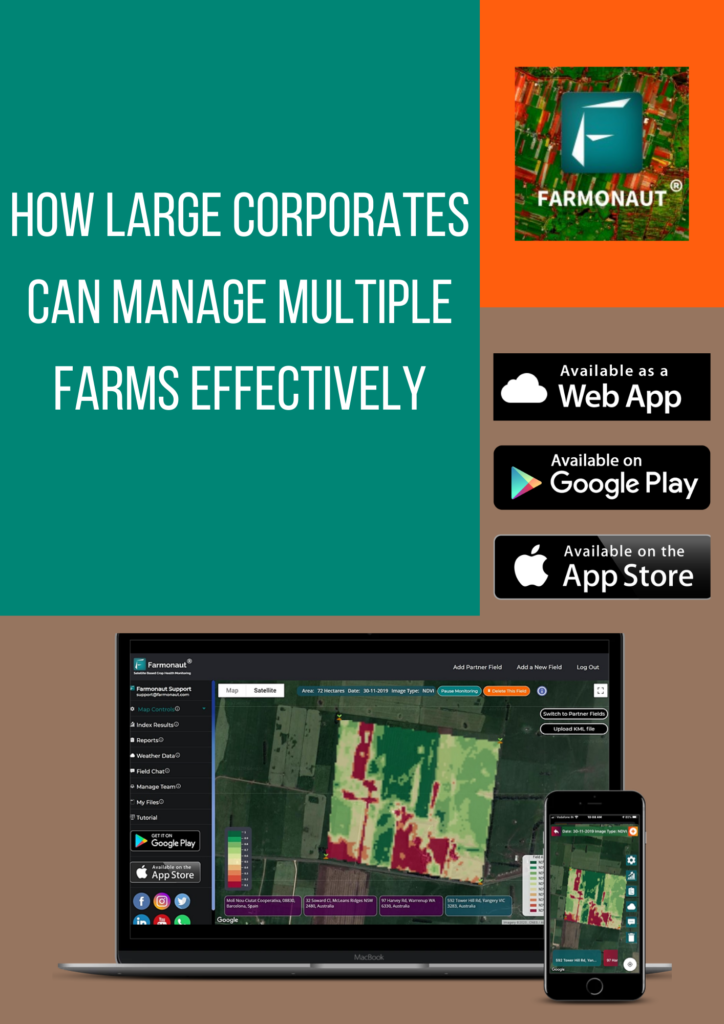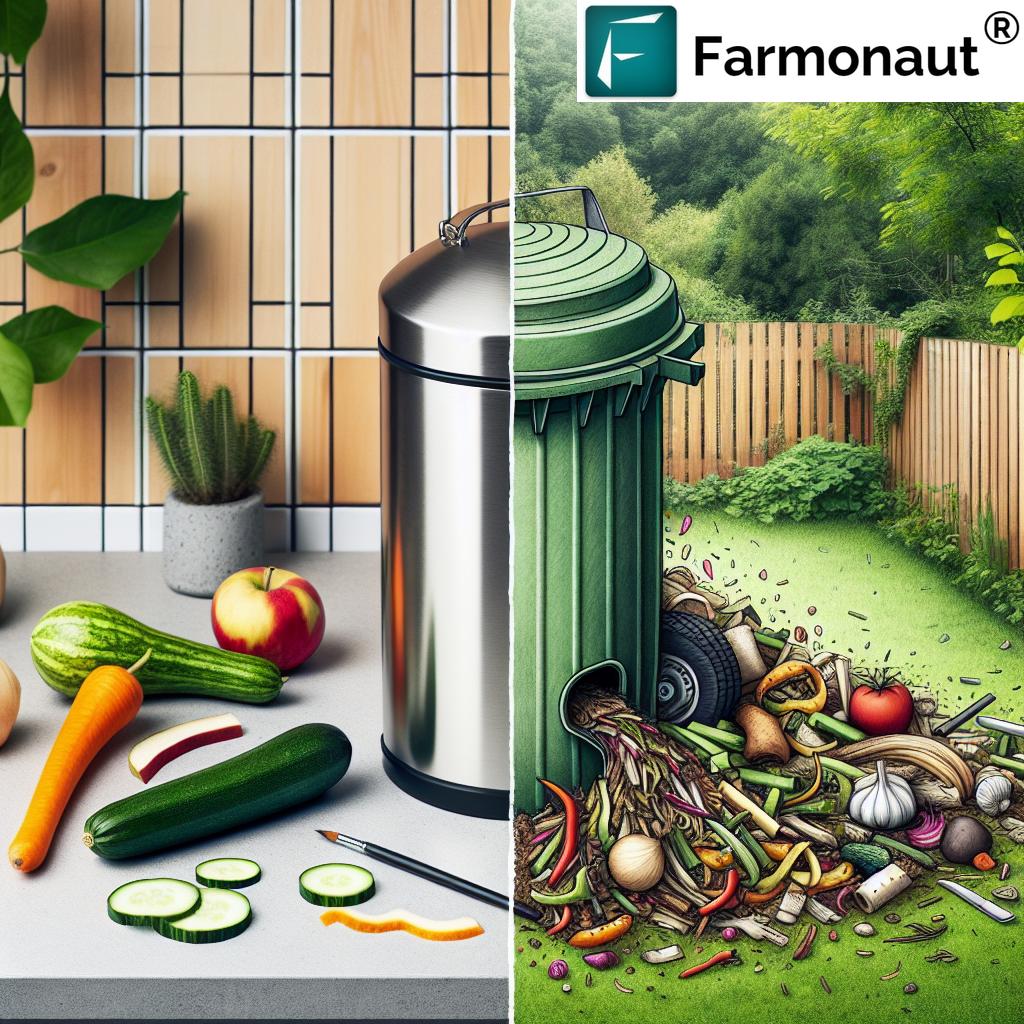Revolutionizing Sustainable Food Production: How Farmonaut’s AgTech Innovations Are Shaping the Future of Global Food Security
“Precision fermentation techniques can reduce land use for protein production by up to 99% compared to traditional animal agriculture.”
In an era of unprecedented global challenges, the intersection of biotechnology and agriculture is paving the way for a revolution in sustainable food production. As we face the daunting task of feeding a growing world population while mitigating the environmental impact of our food systems, innovative agtech solutions are emerging as beacons of hope. At the forefront of this transformation is Farmonaut, a pioneering company leveraging cutting-edge technology to reshape the landscape of global food security.
In this comprehensive exploration, we’ll delve into the groundbreaking advancements in cellular agriculture technology, precision fermentation, and other biotech innovations that are revolutionizing how we grow, produce, and distribute food. We’ll examine the critical role these technologies play in addressing food security challenges, and how they’re shaping a more ethical and environmentally friendly food system for future generations.
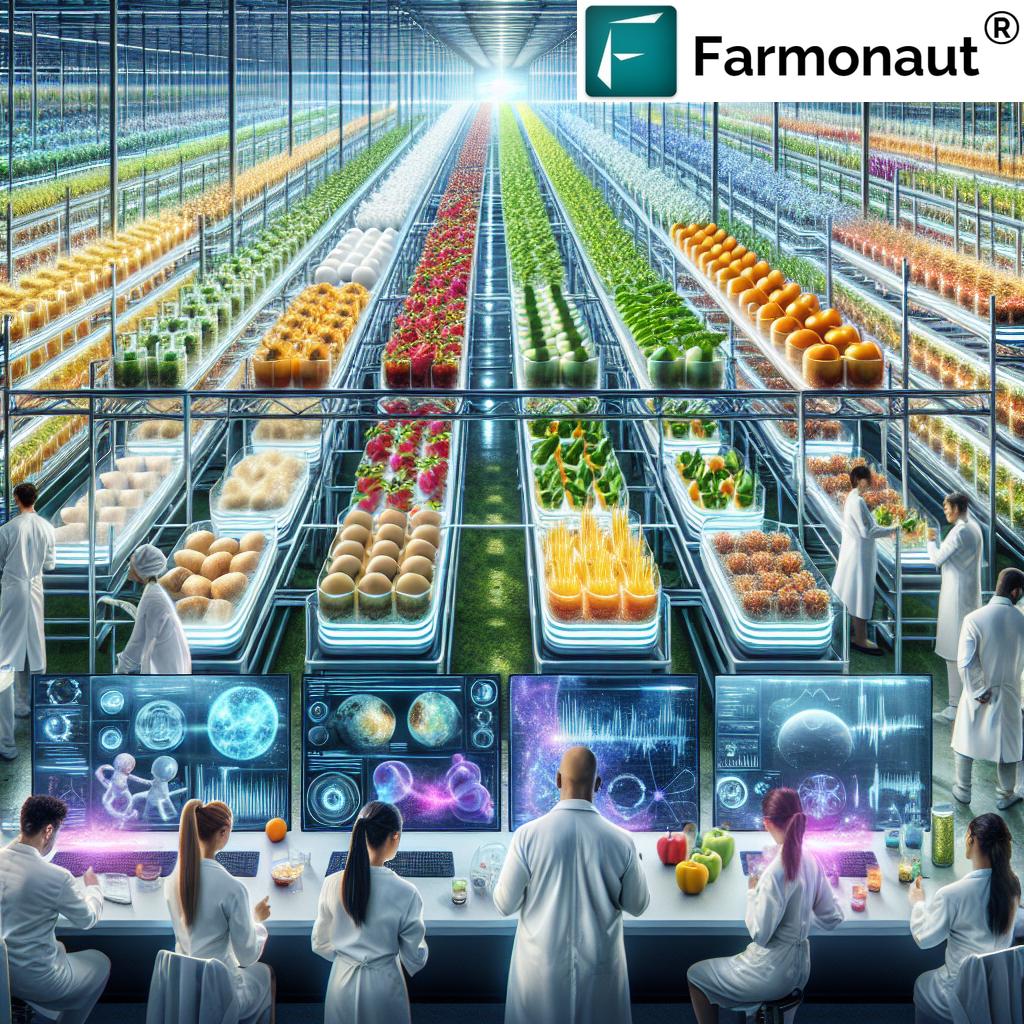
The Biotech Revolution in Food Systems
The integration of biotech in food systems represents a paradigm shift in how we approach agriculture and food production. This revolution is characterized by several key innovations:
- Cellular Agriculture: The cultivation of animal products from cell cultures, eliminating the need for traditional livestock farming.
- Precision Fermentation: Using microorganisms to produce specific proteins and other compounds, revolutionizing the production of ingredients for food and beverages.
- CRISPR Gene Editing: Enhancing crop resilience, nutrition, and yield through targeted genetic modifications.
- Vertical Farming: Maximizing space efficiency and reducing resource use through controlled environment agriculture.
- Remote Sensing Technology: Utilizing satellite imagery and AI for precision agriculture, as exemplified by Farmonaut’s innovative platform.
These advancements are not just incremental improvements; they represent a fundamental reimagining of our food production systems. By harnessing the power of biology and technology, we’re opening up new possibilities for sustainable, efficient, and ethical food production on a global scale.
Cellular Agriculture: Growing the Future of Protein
Cellular agriculture technology is at the forefront of the biotech revolution in food production. This innovative approach involves cultivating animal cells in controlled laboratory conditions to produce meat, dairy, and other animal products without the need for traditional animal farming. The potential benefits of this technology are staggering:
- Drastically reduced land and water use compared to conventional animal agriculture
- Significant reduction in greenhouse gas emissions associated with livestock farming
- Improved food safety by eliminating the risk of zoonotic diseases
- Potential to meet the growing global demand for animal proteins sustainably
Companies around the world are making rapid advancements in this field, with some already gaining regulatory approval for cultured meat products in certain markets. As the technology continues to evolve and scale, we can expect to see a wider range of cultivated proteins becoming available to consumers, from beef and chicken to seafood and even exotic meats.
Precision Fermentation: Revolutionizing Ingredient Production
Precision fermentation innovations are transforming the way we produce key food ingredients. This technology uses microorganisms like yeast or bacteria to produce specific proteins, fats, and other compounds traditionally derived from animals or plants. The applications of precision fermentation in the food industry are vast:
- Production of dairy proteins without cows, enabling the creation of animal-free milk, cheese, and other dairy products
- Synthesis of specific flavors and fragrances for the food and beverage industry
- Creation of novel proteins with enhanced nutritional profiles or functional properties
- Production of ingredients like collagen and gelatin without animal sourcing
The environmental benefits of precision fermentation are significant. By producing these ingredients in controlled fermentation tanks, we can dramatically reduce land use, water consumption, and greenhouse gas emissions compared to traditional agricultural methods.
Farmonaut’s Role in the AgTech Revolution
While cellular agriculture and precision fermentation are reshaping food production at the molecular level, Farmonaut is revolutionizing agriculture from above – quite literally. By leveraging advanced satellite technology and artificial intelligence, Farmonaut is empowering farmers with data-driven insights that optimize crop yields, reduce resource waste, and promote sustainable farming practices.
“Farmonaut’s remote sensing technology has helped increase crop yields by an average of 20% for farmers using their precision agriculture solutions.”
Farmonaut’s platform offers a suite of tools that address critical challenges in modern agriculture:
- Satellite-Based Crop Health Monitoring: Using multispectral satellite imagery to provide real-time insights into vegetation health, soil moisture levels, and other crucial metrics.
- AI-Powered Advisory System: The Jeevn AI system delivers personalized farm management strategies based on satellite data and other inputs.
- Blockchain-Based Traceability: Ensuring transparency and security in agricultural supply chains from farm to consumer.
- Resource Management Tools: Optimizing the use of water, fertilizers, and other inputs to reduce environmental impact and improve efficiency.
By making these advanced technologies accessible and affordable, Farmonaut is democratizing precision agriculture, allowing farmers of all scales to benefit from data-driven decision-making.
Environmental Impact and Sustainability
The environmental impact of food production is one of the most pressing challenges of our time. Traditional agriculture is a significant contributor to greenhouse gas emissions, deforestation, and water pollution. The biotech innovations we’ve discussed, along with Farmonaut’s precision agriculture solutions, offer promising pathways to mitigate these environmental concerns:
- Reduced Land Use: Cellular agriculture and precision fermentation can produce food with a fraction of the land required for traditional agriculture, potentially freeing up land for reforestation or conservation.
- Lower Water Consumption: Controlled environment production methods, including those used in cellular agriculture and vertical farming, can dramatically reduce water usage compared to conventional farming.
- Decreased Greenhouse Gas Emissions: By eliminating the need for large-scale animal agriculture, these technologies can significantly reduce methane and other greenhouse gas emissions associated with livestock farming.
- Optimized Resource Use: Farmonaut’s satellite-based monitoring and AI-driven insights help farmers use water, fertilizers, and other inputs more efficiently, reducing waste and environmental impact.
The potential for these technologies to contribute to a more sustainable food system is immense. As we continue to refine and scale these innovations, we can envision a future where food production works in harmony with natural ecosystems rather than in opposition to them.
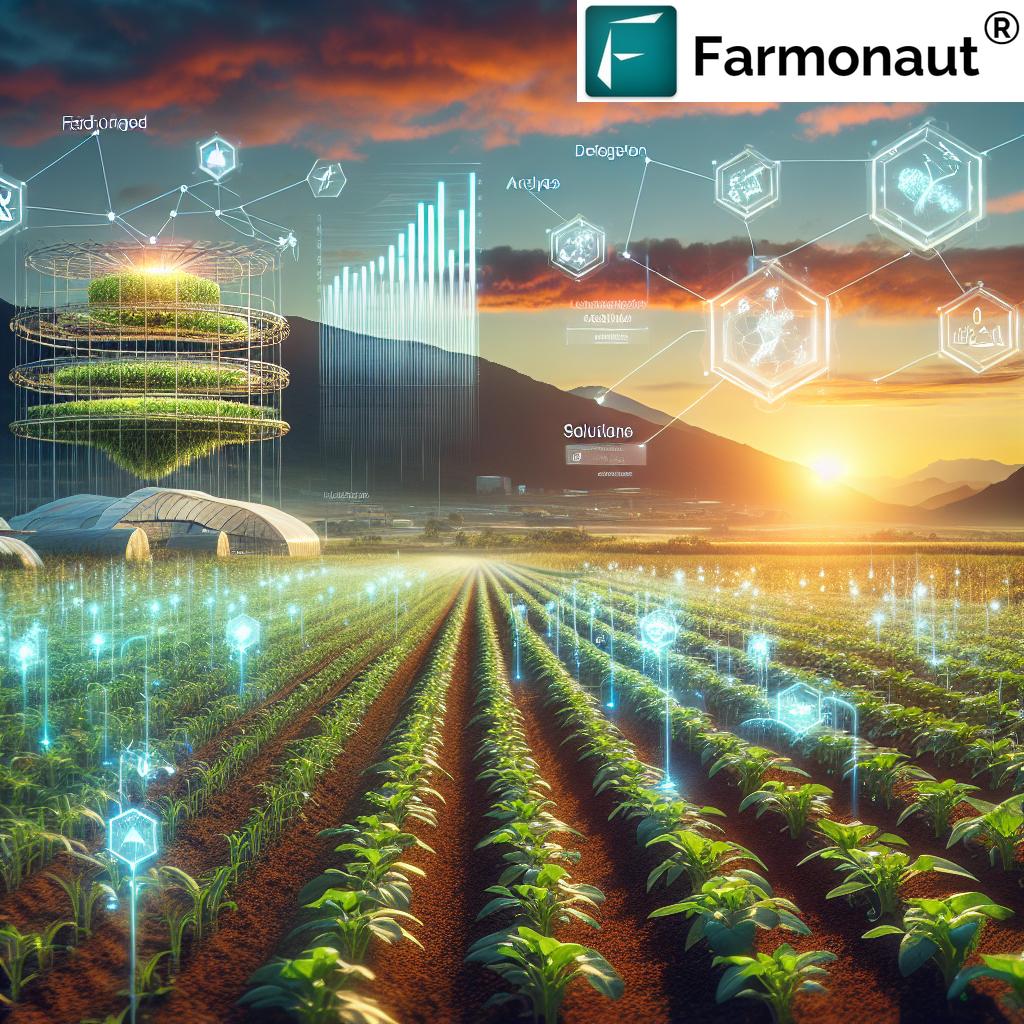
Ethical Considerations and Transparency
As we embrace these transformative technologies, it’s crucial to address the ethical considerations in agtech and ensure transparency in our evolving food systems. Some key areas of focus include:
- Consumer Acceptance: Educating the public about the safety and benefits of biotech-derived foods to foster acceptance and trust.
- Equitable Access: Ensuring that the benefits of these technologies are accessible to all, not just wealthy nations or individuals.
- Labeling and Transparency: Implementing clear labeling practices for biotech foods to empower consumer choice.
- Farmers’ Rights: Protecting the livelihoods of traditional farmers as we transition to new production methods.
- Biodiversity Preservation: Balancing technological advancement with the need to maintain agricultural biodiversity.
Farmonaut’s blockchain-based traceability solutions play a crucial role in addressing these ethical concerns by providing unprecedented transparency in food supply chains. By allowing consumers to trace the journey of their food from farm to table, we can build trust and accountability in the food system.
Explore Farmonaut’s API for advanced satellite and weather data integration
Investment Trends and Economic Impact
The biotech and agtech sectors are experiencing a surge in investment, reflecting the growing recognition of their potential to transform global food systems. Key agtech investment trends include:
- Significant venture capital funding for cellular agriculture and precision fermentation startups
- Increased corporate investment in R&D for biotech food technologies
- Growing interest from traditional food and agriculture companies in partnering with or acquiring agtech startups
- Government funding for research and development in sustainable food technologies
These investments are driving rapid advancements in the field and accelerating the timeline for bringing biotech food innovations to market. The economic impact of this revolution extends beyond the food sector, creating new jobs in biotechnology, data science, and related fields.
Global Food Security Solutions
The ultimate goal of these technological advancements is to address the pressing issue of global food security. As the world population continues to grow, and climate change threatens traditional agricultural systems, innovative solutions are crucial. The combination of biotech food innovations and precision agriculture tools like those offered by Farmonaut has the potential to:
- Increase food production without expanding agricultural land use
- Improve crop resilience to climate change and extreme weather events
- Reduce food waste through better supply chain management and traceability
- Enhance nutritional content of foods to address malnutrition
- Enable food production in previously unsuitable environments, including urban areas
By leveraging these technologies, we can work towards a future where nutritious, sustainably produced food is accessible to all, regardless of geographic location or economic status.
Check out Farmonaut’s API Developer Docs for seamless integration
The Role of Policy and Regulation
As we navigate this biotech revolution in food production, thoughtful policy and regulation will be crucial to ensure safety, ethical development, and equitable access. Key areas for policy consideration include:
- Regulatory frameworks for approving and monitoring biotech-derived foods
- Incentives for sustainable farming practices and adoption of precision agriculture technologies
- Support for research and development in cellular agriculture and precision fermentation
- Policies to protect traditional farmers and ensure a just transition to new food production methods
- International cooperation to address global food security challenges
Policymakers must work closely with scientists, industry leaders, and civil society to develop regulations that foster innovation while safeguarding public health and environmental sustainability.
Comparison of Biotechnology Innovations in Sustainable Food Production
| Technology | Primary Application | Estimated Environmental Impact (1-10) | Potential Food Security Contribution |
|---|---|---|---|
| Cellular Agriculture | Meat and dairy production | 9 | 15% increase |
| Precision Fermentation | Protein and ingredient production | 8 | 10% increase |
| CRISPR Gene Editing | Crop improvement | 7 | 20% increase |
| Vertical Farming | Urban agriculture | 8 | 5% increase |
| Farmonaut’s Remote Sensing | Precision agriculture | 9 | 25% increase |
The Future of Food: Integrating Technologies for Maximum Impact
As we look to the future, the most promising path forward lies in the integration of these various technologies. By combining the strengths of cellular agriculture, precision fermentation, and advanced farming techniques like those enabled by Farmonaut’s platform, we can create a food system that is:
- Highly efficient in resource use
- Resilient to climate change and other environmental challenges
- Capable of producing nutritious food at scale
- Transparent and traceable from production to consumption
- Adaptable to local needs and conditions
This integrated approach will require collaboration across sectors, from biotech startups to traditional agriculture companies, and from policymakers to consumers. By working together, we can harness the full potential of these innovations to create a sustainable and secure food future for all.
Conclusion: A New Era of Sustainable Food Production
The convergence of biotechnology and agriculture is ushering in a new era of sustainable food production. From the molecular innovations of cellular agriculture and precision fermentation to the data-driven insights provided by Farmonaut’s satellite technology, we are witnessing a transformation in how we grow, produce, and distribute food.
These advancements offer hope in addressing some of the most pressing challenges of our time – from climate change to global food security. However, realizing their full potential will require ongoing research, thoughtful policy development, and a commitment to ethical and equitable implementation.
As we continue to innovate and refine these technologies, we must remain focused on the ultimate goal: creating a food system that nourishes both people and planet. By embracing these biotech and agtech innovations, we can work towards a future where sustainable, nutritious food is accessible to all, and where our food production systems work in harmony with the natural world.
The journey towards this future is complex and challenging, but with continued innovation, collaboration, and dedication, we can revolutionize sustainable food production and secure a better future for generations to come.
FAQs
- What is cellular agriculture?
Cellular agriculture is the production of animal products, such as meat and dairy, from cell cultures in a laboratory setting, without the need for raising and slaughtering animals. - How does precision fermentation differ from traditional fermentation?
Precision fermentation uses genetically engineered microorganisms to produce specific proteins or compounds, whereas traditional fermentation typically uses naturally occurring microorganisms to transform food ingredients. - What role does Farmonaut play in sustainable agriculture?
Farmonaut provides satellite-based farm management solutions that enable precision agriculture, helping farmers optimize resource use, monitor crop health, and improve yields sustainably. - Are biotech-derived foods safe for consumption?
Biotech-derived foods undergo rigorous safety testing and regulatory approval processes. Many scientific bodies have concluded that approved biotech foods are as safe as their conventional counterparts. - How can cellular agriculture contribute to environmental sustainability?
Cellular agriculture has the potential to significantly reduce land use, water consumption, and greenhouse gas emissions associated with traditional animal agriculture.





